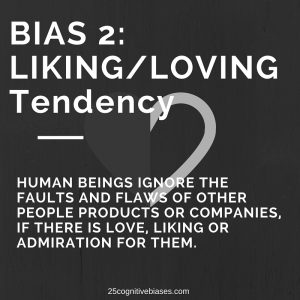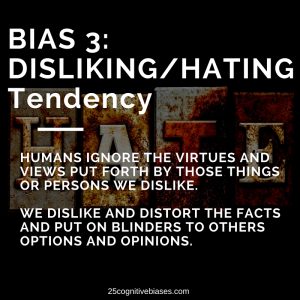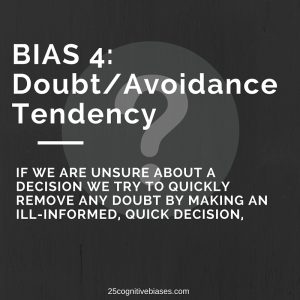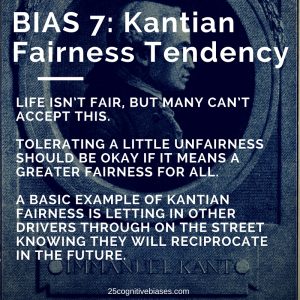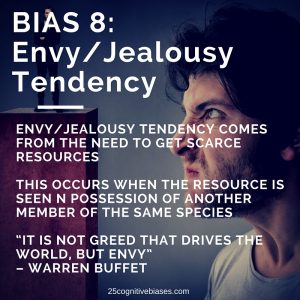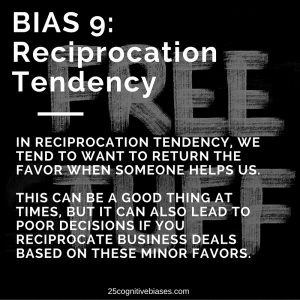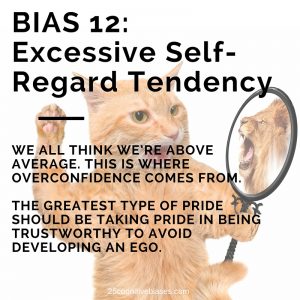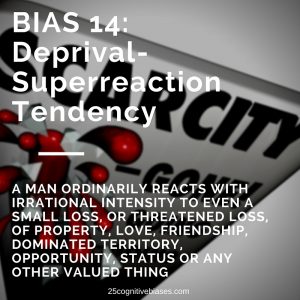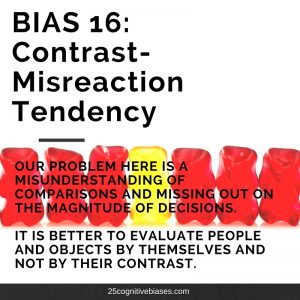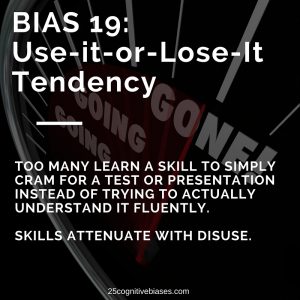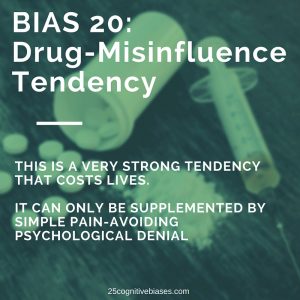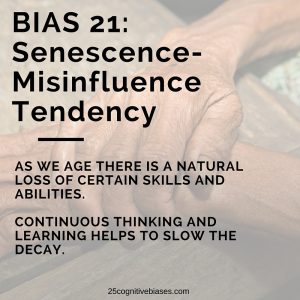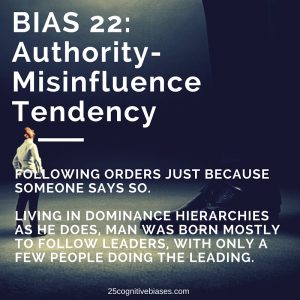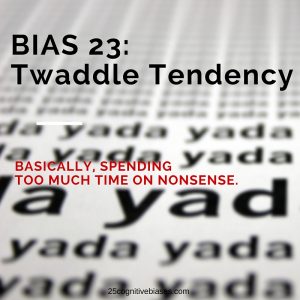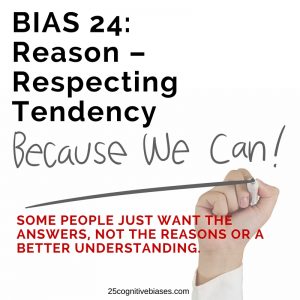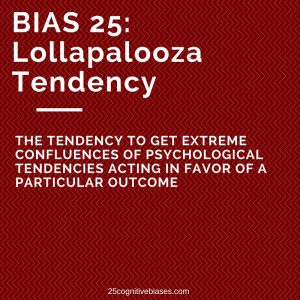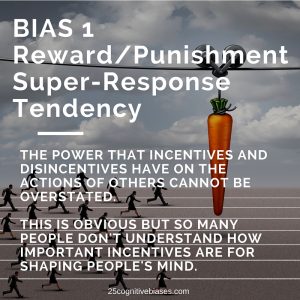 The power that incentives and disincentives have on the actions of others cannot be overstated. Munger says this should be obvious but so many people don’t understand the how important incentives are for shaping people’s motivation to complete a task. The power that incentives and disincentives have on the actions of others cannot be overstated. Munger says this should be obvious but so many people don’t understand the how important incentives are for shaping people’s motivation to complete a task.Incentives and disincentives are extremely important in changing behavior. Just follow Benjamin Franklin’s Maxim: “If you would persuade, appeal to interest and not to reason” “Never think about something else when you should be thinking about the power of incentives.” “Incentives will almost always trump any moral duty” ‘The most important rule in management “Get the incentives right”‘ “Bad behavior is intensely habit forming when it is rewarded.” These were some quotes from Charlie Munger on Reward and Punishment Super Response… |
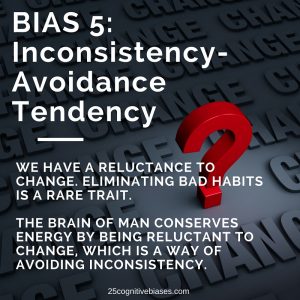 We have a reluctance to change. Eliminating bad habits is a rare trait. We have a reluctance to change. Eliminating bad habits is a rare trait.The brain of man conserves programming space by being reluctant to change, which is a form of inconsistency avoidance. Factors that create an anti-change and Inconsistency Avoidance Tendency mode in humans:
|
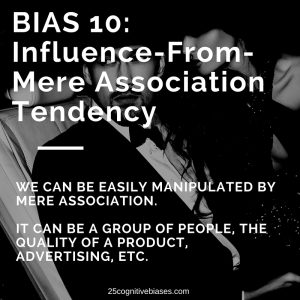 We can be easily manipulated by mere association. It can be a group of people, the quality of a product, advertising, etc. We can be easily manipulated by mere association. It can be a group of people, the quality of a product, advertising, etc. |
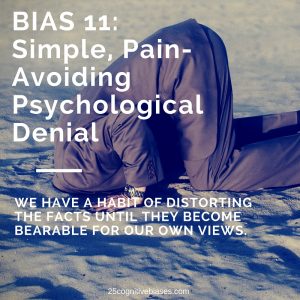 We have a habit of distorting the facts until they become bearable for our own views. We have a habit of distorting the facts until they become bearable for our own views. |
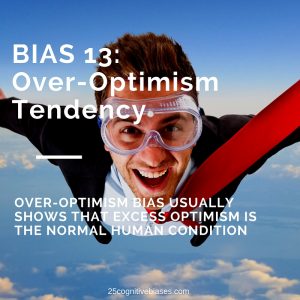 Over-optimism bias usually shows that excess of optimism is the normal human condition Over-optimism bias usually shows that excess of optimism is the normal human condition |
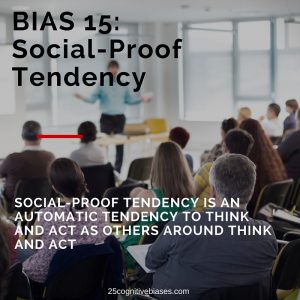 Social-Proof Tendency is an automatic tendency to think and act as others around think and act Social-Proof Tendency is an automatic tendency to think and act as others around think and act |
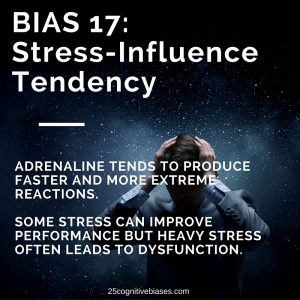 Adrenaline tends to produce faster and more extreme reactions. Some stress can improve performance but heavy stress often leads to dysfunction. Adrenaline tends to produce faster and more extreme reactions. Some stress can improve performance but heavy stress often leads to dysfunction. |
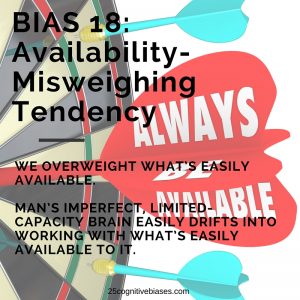 We overweigh what’s easily available. A checklist or set of rules can help with this tendency. We overweigh what’s easily available. A checklist or set of rules can help with this tendency.Man’s imperfect, limited-capacity brain easily drifts into working with what’s easily available to it. And the brain can’t use what it can’t remember or The great algorithm to remember in dealing with availability bias is simple: |

